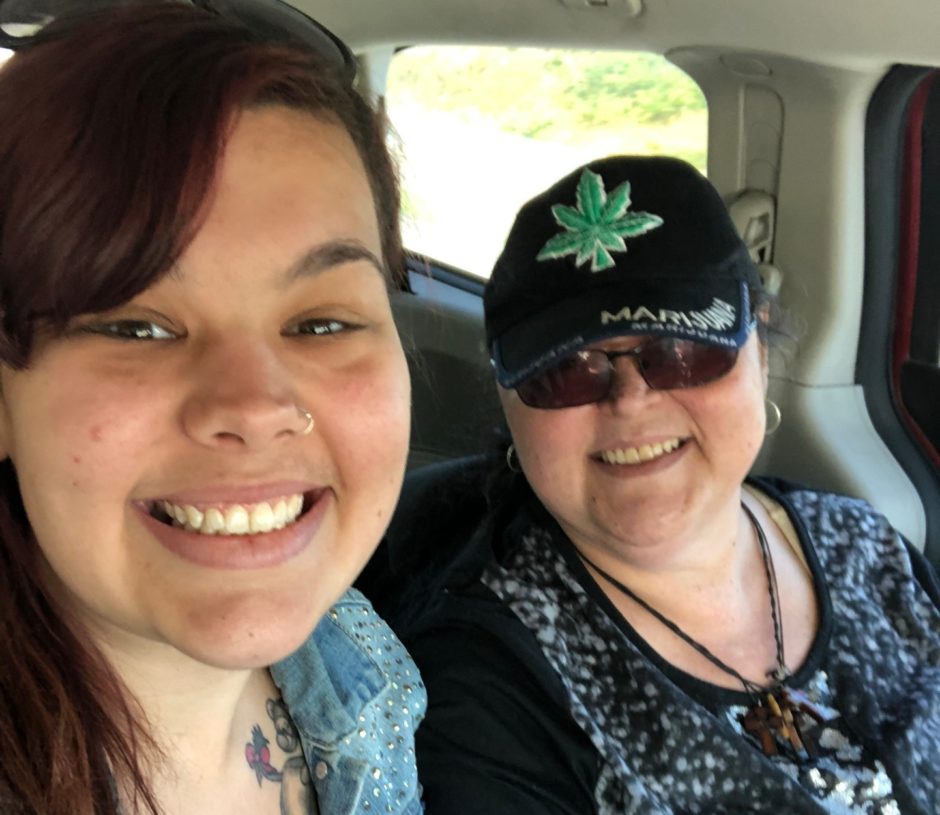June 8, 2020
She had not seen her mom for two months.
When Cheyenne O’Grady, 23, opened the door of Josephine Turnbull’s room in palliative care, she lost her breath.
“She didn’t look like my mom,” O’Grady said.
“My mom’s hair was matted together [and] her feet looked like they didn’t have her toenails done.”
At 52, Turnbull suffered mini-strokes after an already debilitating brain tumour.
She was admitted in February to St. Clare’s Hospital in St. John’s, where she received faithful visits from her sister, Sandra, and only child, Cheyenne. Shortly after she was admitted, COVID-19 fears shut down visitation.
“I am her favourite thing in the whole wide world and she was mine.”
Turnbull was eventually moved to Carbonear General Hospital. Her family was left to wait — and to wonder.
“It was like living in the Twilight Zone. Every day was groundhog day,” O’Grady said, speaking through tears. “You knew mom was sick but you couldn’t get to her.”
Once her mother’s condition turned critical, O’Grady and her aunt were allowed to see her. Without her usual daily care from family, O’Grady said, her mom looked disheveled.
The two months apart ripped at O’Grady’s heart. When she was able to say goodbye, her mother wasn’t verbal.
O'Grady's elderly grandmother is in long-term care and has had to grieve her daughter without the physical support of her other children and grandchildren.
It has been a heavy load to bear for the young woman who said she was her mother’s sunshine.
“I am her favourite thing in the whole wide world and she was mine.”
Josephine Turnbull died on May 5.
No more visits at long-term care
More than three hours away, in Grand Bank, on Newfoundland’s Burin Peninsula, the Hiscock family was going through its own turmoil.
Every day, twice a day, Maureen Greeley’s father Stephen Hiscock would drive down the same three kilometres of road to visit the love of his life, Lily Hiscock, his wife of 53 years. He would feed her, speak to her, comfort her.
In September 2018, the couple got in a serious accident while heading to St. John’s. Damage from the crash resulted in Lily — once active and vibrant — being admitted to a long-term care facility near her home.
“My dad was a big source of comfort for her. Myself and the nursing staff there, we tried to wrap our brains around things to comfort her and at times we’d joke if we put a cardboard cutout of Dad and put it in the room,” said Greeley, one of Lily and Stephen’s four daughters.
“He was just heartbroken when I called him to tell him he couldn’t visit her anymore.”
On March 24, the Newfoundland and Labrador government implemented a ban on all visitors to long-term care homes. The move came as the province recorded 35 cases of novel coronavirus, and there were fears over what would transpire if the virus entered a seniors’ home.
Newfoundland and Labrador is one of the few provinces that escaped mass casualties in long-term care facilities as a result of COVID-19. Officials have said that following the rules has not only kept the virus out of these institutions, but has saved lives.
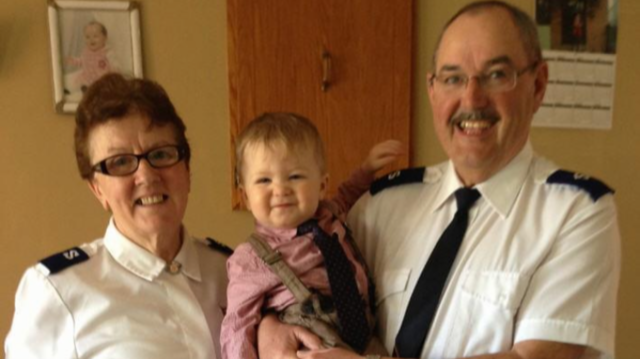
Lily Hiscock wasn’t well enough for window visits, because it would upset her more to see her husband at a distance, Greeley said.
But during Facetime calls, she mouthed to her husband that she loved him.
On April 1, Lily’s health took a turn for the worst and she ended up in palliative care. At that point, two people were allowed to visit — but not at the same time.
“I had to be physically out of the building before my father [was] allowed to come in,” Greeley said. “So we’re both there, we’re both exposing the staff to us, we’re both exposing mom to us but we can’t be together.”
For a brief period, her condition improved and Lily was moved out of palliative care. It was a bittersweet moment — her health had improved, but visits had to stop.
It was short-lived. She ended up back in palliative care, with only two people allowed in at one time.
On May 7, Greeley and her sister had visited their mom. Due to the two-person per-day rule, her father, once joined at the hip with his beloved wife, was not allowed to come in.
That was the day Lily died.
“He was involved through the phone. How horrible is that?” Greeley said.
‘Maybe we should just have her funeral at Walmart’
Greeley is still trying to wrap her head around the public health emergency rules which she said appear to be arbitrary, and unfair.
The loss was magnified during the burial process when she and her family had no other choice but go against her mother’s wishes
“They are Salvation Army and when you die and you’re a salvationist, it’s a big celebration of your life. She was a Christian all her life and to have that taken away from her … things like that are things I don’t understand,” Greeley said.
“I looked at Dad and said, ‘Maybe we should just have her funeral at Walmart,’ because 40 of us could have gone there.”
On the day of the burial, Greeley’s husband, children and niece sat in the parking lot of the funeral home.
“We’re at the graveyard and my son [who was a pallbearer] did help carry her. He’s there with the clergy and funeral director, puts her in her final resting place and then he needs to get in his car before I can even get out,” she said.
“And we’re in a graveyard. We’re not in a building.”
The province has relaxed the rules somewhat since Lily Hiscock and Josephine Turnbull passed away.
As of Monday, gatherings at funerals and burials are expanded to 20 people, so long as physical distancing can be maintained.
Visitations and wakes are still prohibited.
Losing a brother to addiction
Grieving through a global pandemic has been a challenge for those who lost people shortly before COVID-19 changed our lives. These losses were amplified by silence and isolation.
Erin Wall, 29, lost her older brother Scott Ryan, 30, on Feb. 13.
Ryan, who lived in Torbay, had struggled with mental illness and turned to drugs to self-medicate. His heart couldn’t handle the addiction. He suffered a heart attack, two months after completing rehab at the Grace Centre in Harbour Grace.
Wall’s mother, Julie, found her son dead in his apartment after she failed to hear from him for 24 hours.
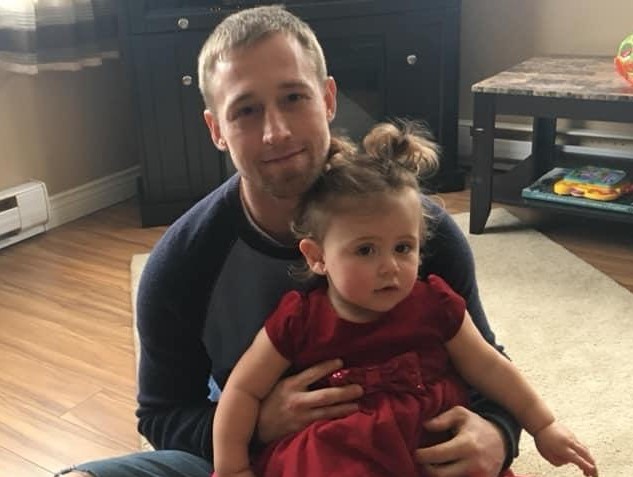
“She’s not doing well … both of my parents,” Wall said.
“My mother, obviously, is worse because she is the one who found my brother. She bent over backwards for my brother trying to receive help for him for his mental health.”
Until the government allowed double bubbles at the end of April, Wall said she and her mother spoke every night on the phone but couldn’t see each other.
“She hasn’t seen anyone so you’re home alone with your thoughts, and no shoulder to cry on basically. You’re deprived of giving comfort and receiving comfort.”
Wall said her mom was scheduled to have grief counselling through her employer, Eastern Health, but the appointments were cancelled the day before they were due to start. Because of COVID-19, the regional health authorities pulled back services that were deemed non-essential.
She has not been contacted since, Wall said.
“I do believe [mental health services are] essential and I think you are going to see a greater jump in people struggling with their mental health, not being able to receive counselling,” Wall said.
Petition for funerals
The challenges of losing a loved one during a pandemic is no different outside of the province, as well
Amy Fowlow, who was raised in Newfoundland, moved to Newcastle, Ont., three years ago to be closer to her elderly grandmother, who had been diagnosed with Alzheimer’s.
A week after going to a seniors’ home, COVID-19 prompted the Ontario government to shut down visitation.
Her grandmother passed away on May 16, due to natural causes.
“My mom is convinced she died of a broken heart,” said Fowlow, 23.
Beverley Fardell had 12 grandchildren and a large circle of family and friends. The family ultimately decided to cremate Fardell to allow for a funeral once restrictions are lifted.
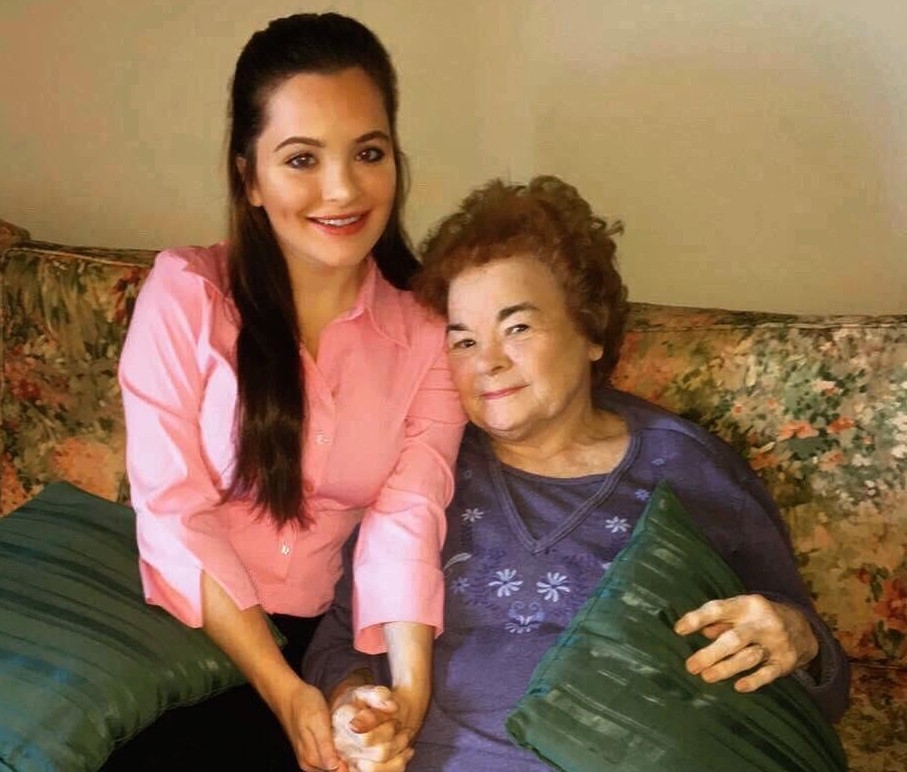
“At first I was upset but then I was confused, because there are hundreds of thousands of people gathering in parks, in Walmart,” Fowlow said.
“My aunt visited us and drove four hours and just stood at the end of our driveway and cried, and we couldn’t touch each other.”
Fowlow’s grief has pushed her into action, and she’s begun advocating for funerals to take place with as many people as possible if physical distancing can be maintained.
The online petition has hundreds of signatures. Though she’s hoping for changes to the Ontario government’s regulations, she said she’s been hearing similar stories across the country.
What are the long-lasting effects?
Registered psychologist Dr. Janine Hubbard said the lasting effects of grieving during the pandemic are a topic of conversation among those in the psychology field.
“It’s happening to us on top of already heightened stress levels and anxiety levels that we’re experiencing as a population,” Hubbard said.
“One of the things that we’re really worried about is what’s going to happen in terms of grief and the high risk of it being disrupted, complicated or prolonged given the COVID situations.”
Disrupted bereavement can, if not addressed, result in substance use, broken sleep and it can decrease immune functioning.

Human touch is vital to released oxytocin, a hormone that relaxes the body and makes humans feel good.
Hubbard recommends finding things that can honour their loved one without breaking public health regulations or putting their own health at risk.
She suggests planting a tree or a family member’s favourite plant, perhaps listening to music they enjoyed, or baking their cherished cookie recipe.
But if the grief and loss are too strong to bear, Hubbard stresses that people should reach out to their doctors to get counselling or to see a mental health professional.
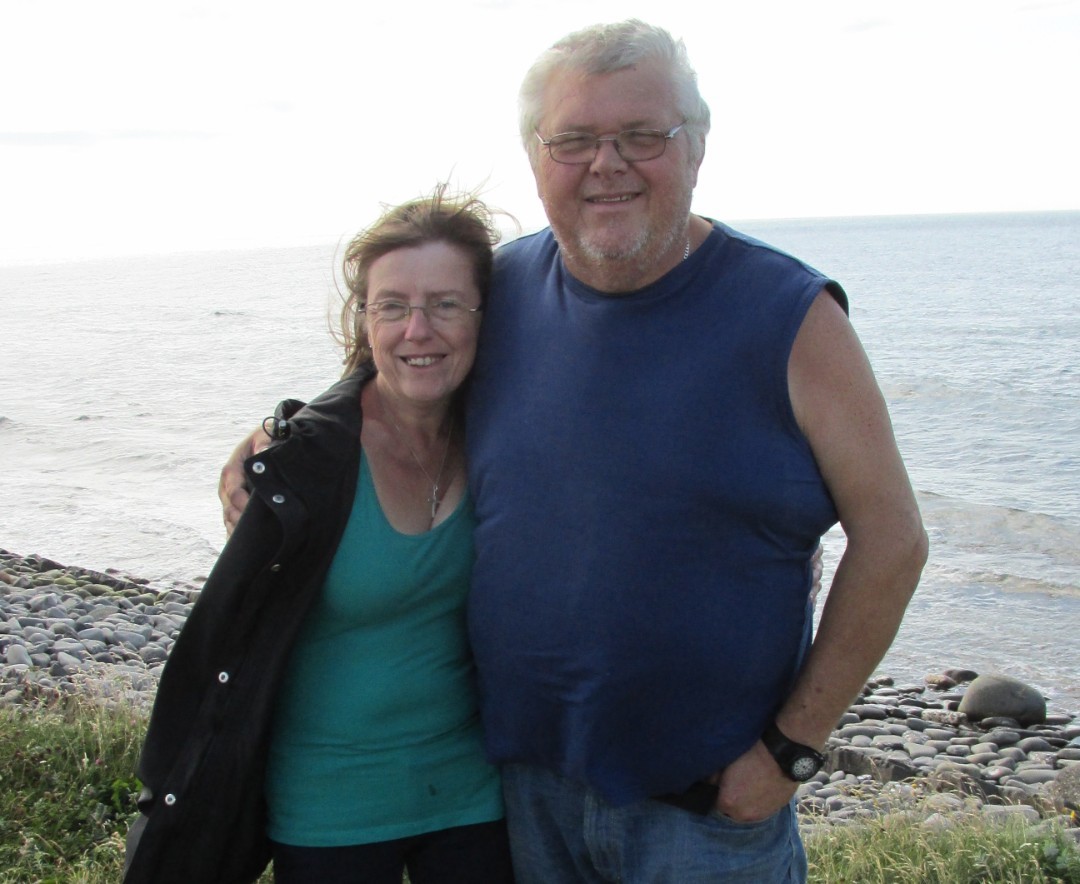
The ability to talk out your feelings is vital, according to Nancy King, who became a widow on April 29, 2019.
“Going through the grieving process is a long and lonely journey at the best of times, and now it’s without physical support,” King said.
“My bubble consists of just me. I live alone and have no family here besides some in-laws that have their own families to take into their bubble.”
King’s husband, Ricky, was just 58 when he suffered a massive heart attack in the couple’s home in Burnt Islands, near Port aux Basques.
With few resources in the small community, King connected with other widows and widowers in an international Facebook page.
She noticed the gap in this province, so they started a Facebook group called Newfoundland Widow and Widowers Support Group.
There are just 20 members, but King hopes the group will grow as more people learned that it exists.
She said the pandemic has been difficult for everyone, but now a year after her loss, King said she sees that things can get better.
“It isn't always doom and gloom,” she said.
“Because we are from the same province, we have so many things in common: music, hobbies, hunting and fishing, just as a few examples, so lots of times we lift each other up and forget the harshness of reality.”
The provincial government has noted an uptick in demand for mental health services since the pandemic began, with two of its help lines.
Calls to the CHANNAL warm line, a non-emergency, non-crisis telephone support and referral service, jumped by nearly 1,000 from May 2019 to May 2020.
The mental health crisis line has similarly seen an increase, with less than 300 additional calls last month than in the previous year.
CHANNAL warm line: 1-855-753-2560 or in St. John’s (709) 753-2560
Mental Health Crisis Line: 1-888-737-4668
